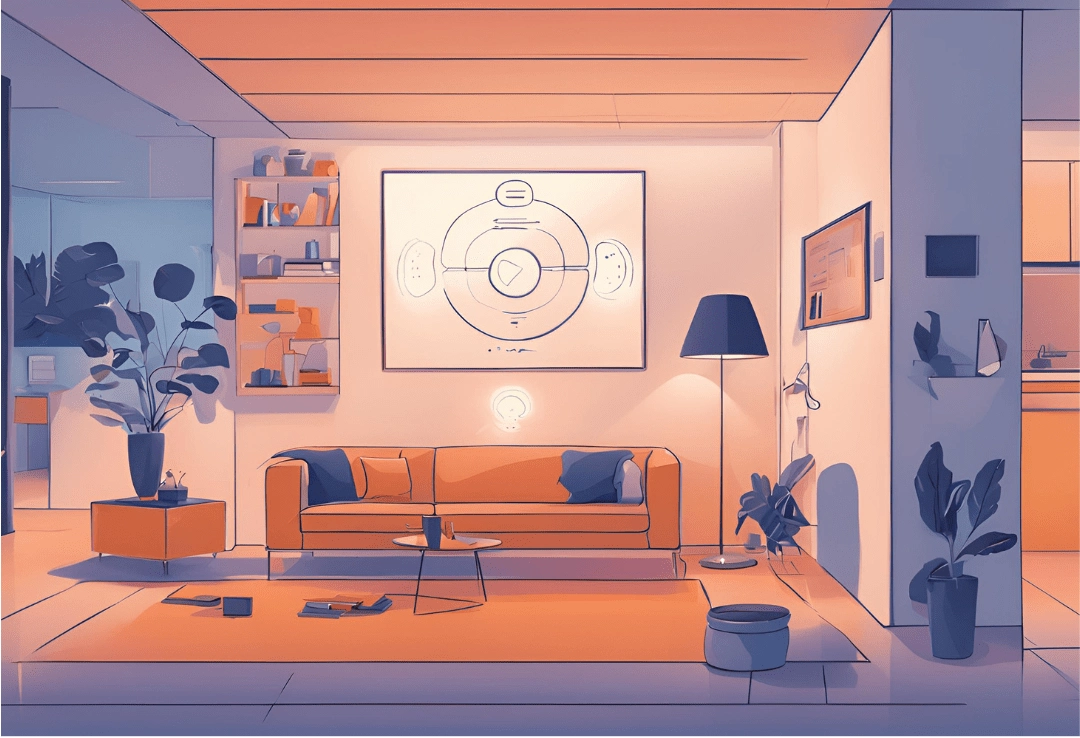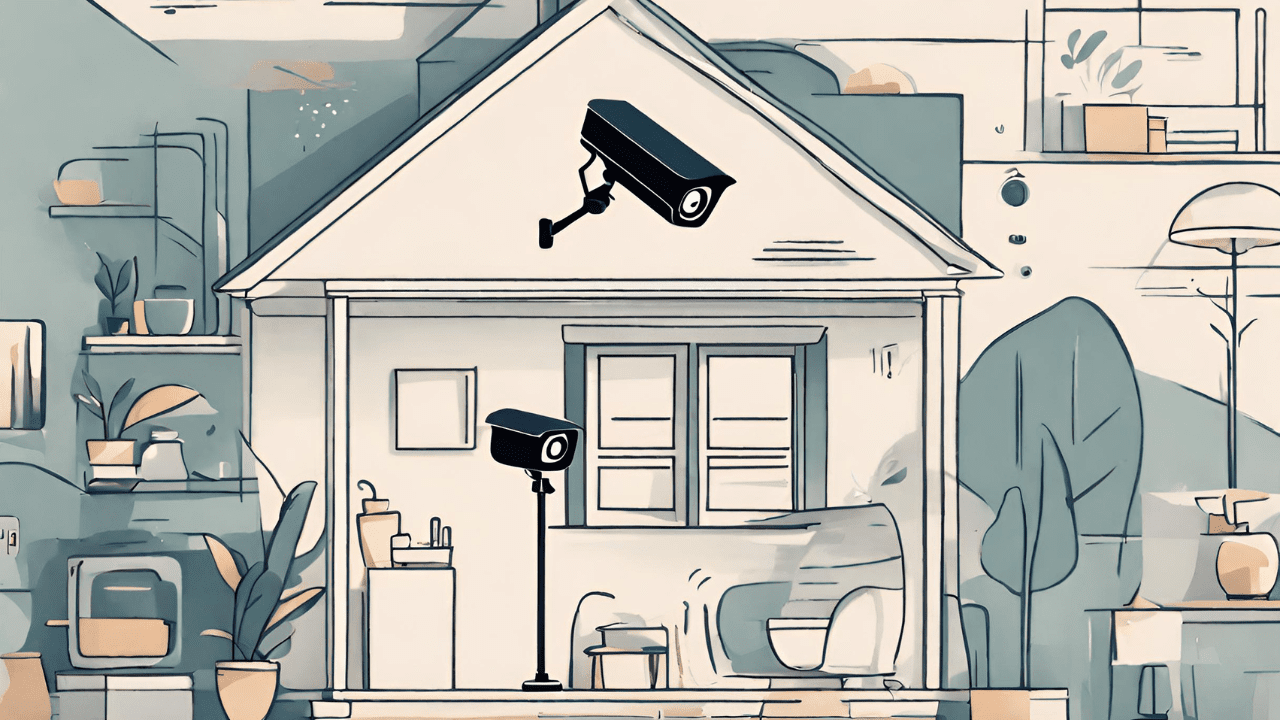6 Smart-Home Device Types That Would Not Benefit From Matter Integration
Smart home tech has been around for a while, but Matter is relatively new. The Matter specification aims to unify smart home development into a single standard. But while embracing Matter seems likely to move us closer to the smart home of our dreams, there are devices that don’t really need to be integrated with the smart home protocol – they work just as well without it.

Please note: This page may contain affiliate links. Read our ethics policy
Smart home tech has been around for a while, but Matter is relatively new. Developed as by the Consumer Standards Alliance, the Matter specification aims to unify smart home development into a single standard.
Until recently, smart home developers have issued devices that run on a collection of protocols. This prevents interoperability between systems, however, leading to hardware conflicts and frustration for smart home owners. Matter has been a positive evolution for the smart home, from lights and blinds to EV charging and leak detection.
But while embracing Matter seems likely to move us closer to the smart home of our dreams, there are devices that don’t really need to be integrated with the smart home protocol – they work just as well without it.
Smart Home Devices with Limited Functionality
Many smart home devices offer limited functionality. These are typically two-state switches with basic on/off functionality, or two-piece sensors for doors and windows.
While such devices have the necessary wireless connectivity (whether Wi-Fi, Bluetooth, Zigbee, Z-Wave), they can be used without Matter integration. For example, while door and window sensors can be used with Matter (and increasingly have Thread compatibility), they don’t need it. The complexities of Matter integration might well be considered unnecessary, superfluous, and ultimately time-consuming.
However, that doesn’t mean you should avoid adding them to a Matter smart home. While there may be potential compatibility issues now (in the Matter 1.3 era), these will likely be overcome later on.
Devices with Limited Functionality
-
Basic on/off switches (e.g., Lutron Caseta Wireless On/Off Switches)
-
Simple plug-in smart outlets (e.g., TP-Link Kasa Smart Plug)
-
Basic door/window sensors (e.g., Aqara Door/Window Sensor)
One other thing to note: while simple smart plugs might not need Matter, they are a good go-to option for your first Matter device setup. Matter smart plugs are simple to use, their function is clear, and they’re easy to manage.
Smart Home Devices with Specialized Functions
It isn’t just basic hardware that might not benefit from Matter. Some systems with highly specialized functions typically rely on proprietary standards. As such, there has to be a trade-off, where Matter compatibility is possible.

Is it worth it to use Matter when the system’s own networking and dedicated app provide functions that aren’t supported in Matter? It’s a point that many of us have been pondering, especially as Matter’s evolution seems to be slow.
Devices with Highly Specialized Functions
-
Home security systems (e.g., Ring Alarm, ADT Smart Home)
-
Advanced HVAC (Heating, ventilation, and air conditioning) systems (e.g., Nest Thermostat)
-
Specialized home entertainment systems (e.g., Sonos sound systems)
While key features from these systems are slowly being adopted in Matter (such as Tado X), security systems, HVAC, and specialized entertainment systems aren’t quite Matter-ready at this stage. You wouldn’t want to compromise on your home’s security, would you?
Smart Home Devices on Established Ecosystems
When Matter was released, key smart home ecosystems had already been developed by Apple (HomeKit), Google (Google Home), and Amazon (Alexa). IKEA already had its own ecosystem too, TRADFRI, which it has since replaced with the Matter-compatible DIRIGERA. While it is no coincidence all four companies are involved with the development of the Matter standard, that hasn’t held back development of devices where Matter is unsuitable.
Smart Home and IoT Devices with Unique Requirements
Internet of Things (IoT) and smart home tech isn’t just about the living room and kitchen. Specialized appliances in the workplace and custom built smart home tech are unlikely to benefit from Matter.
This may be due to a lack of relevant specification with Matter, or simply general incompatibility.
Devices with Unique Requirements
-
Highly specialized appliances (e.g., industrial sewing machines, laboratory equipment)
-
Custom-built or DIY smart home devices (e.g. home security systems)
As Matter doesn’t yet address the needs of these types of device (and may never), they’re unlikely to ever be integrated.
Development Money Matters
A cursory glance of the devices currently supported as of the Matter 1.3 standard reveals a general focus on popular hardware. The living room/lounge (and to some extent the bedroom) takes precedent, with compatibility with smart lamps, LED mood lighting, air purifiers, blinds and curtains, etc. HVAC systems are also slowly being introduced into Matter, along with some kitchen tech such as extractor fans.
These are all popular and must-have technology, which shows that the focus for Matter is on tech that people actually own. This makes sense, of course – there would be little point in developing a unifying smart home protocol for tech that no one owns.
However, at some point (once the advanced features that Matter currently ignores have been finally incorporated) less popular devices and tech will no doubt be integrated with Matter. But even then, some devices may not Matter.
About the Author

Christian Cawley
Editor in Chief
Christian has been writing about technology since the mid 2000s, and has been published in numerous publications, online and in print. These include Android Magazine, Linux User & Developer, Linux Format, Tech Radar, Tom's Hardware, and Computer Active. From 2014-2024, he was a section editor and later deputy editor at MakeUseOf, before joining the Matter Alpha team. Christian enjoys old video games (mainly C64, Amiga, and MS-DOS), classic TV, and telling everyone who will listen that they should have a robot cleaner. When he's not shaping articles, Christian is a dad to three dancers, collects Lego, and is an avid home chef.